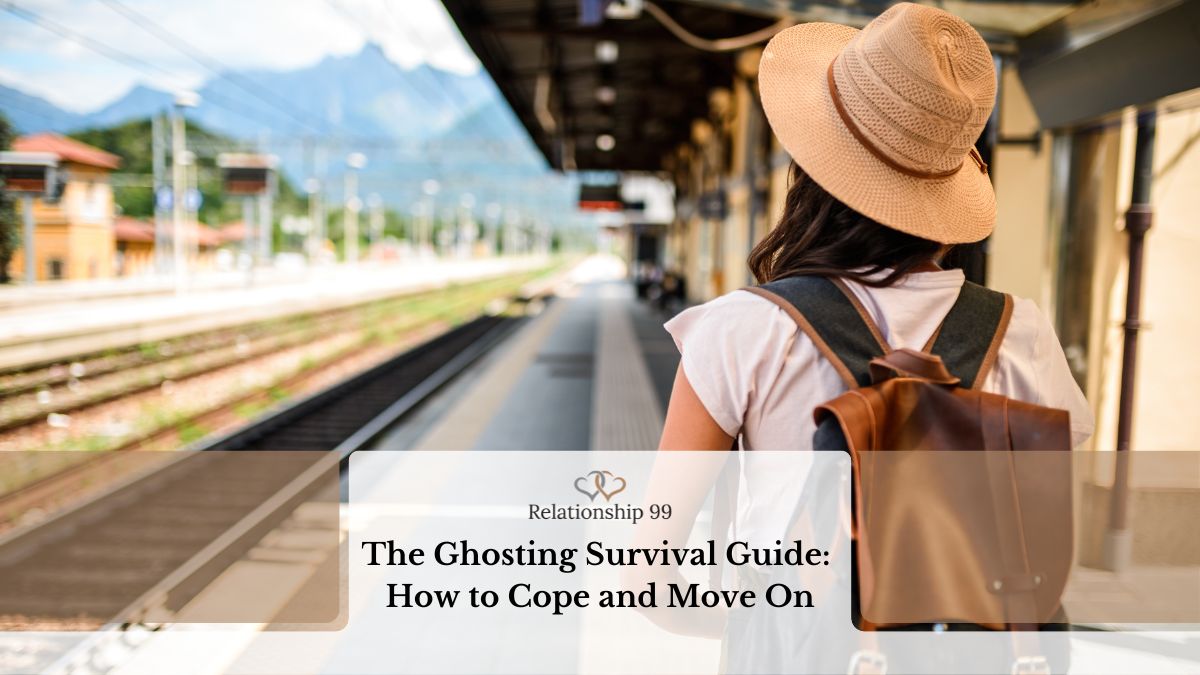Ghosting has become a common phenomenon in today’s dating culture. It refers to the sudden and unexpected disappearance of someone you have been talking to or dating without any explanation or closure. This can happen at any stage of a relationship, whether it is during the initial getting-to-know-you phase or after months of being together. Ghosting can leave you feeling confused, rejected, and hurt. It is a form of emotional manipulation and can have a significant impact on one’s mental health. In this blog, we will discuss the different aspects of ghosting, its effects on individuals, and how to cope with it. Whether you have been ghosted or are guilty of ghosting someone, this survival guide will help you understand the situation better and move on.

What is Ghosting?
Ghosting is a term that originated in the dating scene, but it has now become a common experience in friendships and even professional relationships. It can be defined as the act of suddenly cutting off all contact with someone without any explanation. This means no more texts, calls, or social media interactions. The person who has been ghosted is often left wondering what went wrong and why the other person chose to disappear without a trace. Ghosting can happen in various ways, such as:
- Someone you have been texting suddenly stops responding.
- A person you have been dating disappears without a word.
- A friend you used to hang out with suddenly stops making plans.
- A coworker you used to get along with ignores your messages or calls.
Why do People Ghost?
There are many reasons why people choose to ghost, but they all stem from a lack of communication and honesty. Some common reasons include fear of confrontation, not wanting to hurt the other person’s feelings, or simply losing interest in the relationship. With the rise of online dating and social media, it has become easier for people to disconnect without facing any consequences. They can hide behind their screens and avoid having difficult conversations. However, this does not justify their actions, as it can have a lasting impact on the person who has been ghosted.

The Effects of Ghosting
Ghosting can have serious effects on one’s mental well-being. It can leave the person feeling rejected, confused, and even depressed. The sudden and unexplained disappearance of someone you were emotionally invested in can trigger feelings of inadequacy and self-doubt. This is especially true when the ghoster is someone you trusted or thought had genuine feelings for you. The lack of closure can also make it challenging to move on from the relationship and can lead to a fear of forming new connections in the future. If you have been ghosted, it is essential to acknowledge and address these emotions to heal and move forward.
How to Cope with Ghosting?
Step 1: Acceptance
The first step in coping with ghosting is to accept that it has happened. It can be tempting to keep reaching out and trying to get an explanation, but this will only prolong your pain. Accept that the other person has chosen to disconnect from you without any reason or closure. This can be difficult, but it is necessary for your healing process.
Step 2: Talk to Someone
It is essential to have a support system during this time. Reach out to friends or family members who can listen and offer comfort. Talking about your feelings can help you process them and come to terms with what has happened. It is also important not to isolate yourself and continue engaging in social activities. This can help you move on and form new connections.

Step 3: Focus on Self-Care
Ghosting can take a toll on your mental health, so it is crucial to prioritize self-care during this time. Engage in actions that bring you joy and make you feel good about yourself. This could be exercising, spending time outdoors, or indulging in a hobby. Taking care of your physical and emotional well-being will help you heal and move forward.
Step 4: Avoid Blaming Yourself
It is common to question what you did wrong or blame yourself for being ghosted. However, it is important to remember that ghosting says more about the other person’s character than yours. No one deserves to be treated with such disrespect, and it is not your fault. Refrain from viewing yourself as unworthy or unlovable because of someone else’s actions.
Step 5: Reflect and Learn
While it is not your fault that you have been ghosted, it is essential to reflect on the relationship and what could have led to this outcome. This can help you identify any patterns or red flags to look out for in future relationships. However, do not dwell on this for too long, as it can hinder your healing process. Use this as a learning experience and move on.

How to Avoid Ghosting Others?
If you have been guilty of ghosting someone in the past or are afraid of doing it in the future, here are some tips to avoid this hurtful behavior:
- Be honest and communicate your feelings, even if they may be difficult to share.
- Practice empathy and consider the other person’s feelings before making a decision.
- Set boundaries and be clear about your intentions from the beginning of a relationship or friendship.
- If you feel like the relationship is not working out, have a mature conversation and end things respectfully.
To Wrap Up
Ghosting is unfortunately becoming a common experience in relationships, but it does not have to be the norm. By understanding its effects and how to cope with it, we can create healthier and more honest connections with others. Remember that being ghosted does not define your worth, and with time and self-care, you will be able to move on from this experience. So, whether you are currently going through a ghosting situation or want to avoid doing it in the future, use these tips as a guide to navigate this tricky aspect of modern relationships. Keep communication open and always treat others with kindness and respect. With these actions, we can make ghosting a thing of the past.

